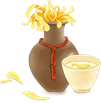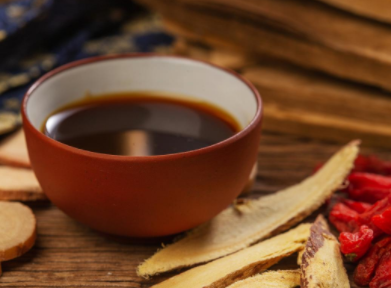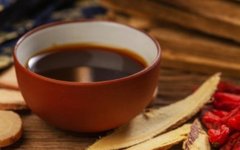
Click
The text above
Follow us~



Before decocting the herbs, clean the pot and all utensils thoroughly. Handle herbs that require special treatment separately, such as “pre-decocting”, “post-addition”, “bag decoction”, “separate decoction”, “melting”, and “infusion”.
(1) Soaking before decoction: ① Time ≥ 30 minutes; ② Water temperature ≤ 60℃; ③ Water volume: 2-5 cm above the herb surface.
(2) Fire for decoction: The main principle is “first strong then gentle”; use gentle fire for tonifying herbs and strong fire for releasing exterior herbs.
(3) Decoction times are as follows:
|
Herb Category |
First Decoction Time After Boiling |
Second Decoction Time After Boiling |
|
General Herbs |
20-30 minutes |
15-20 minutes |
|
Releasing Exterior, Clearing Heat, Aromatic Herbs |
15-20 minutes |
10-15 minutes |
|
Tonifying Herbs |
40-60 minutes (gentle fire) |
30-40 minutes |
(4) Decoction yield: ① Children 100-300 ml; ② Adults 400-600 ml
(5) Quality of decoction: The decocted liquid should have the characteristic aroma of each herb in the original prescription, without moldy, sour, or other off-odors; the remaining residue should not have hard cores, white cores, or be charred, and the amount of liquid extracted should not exceed 20% of the total weight of the residue.
Note: If the decoction has dried out, simply add new water and re-decoct. If it has burned, a new batch of herbs must be decocted. After decoction, the liquid should be filtered out promptly while hot; combine the two decoctions and take in two doses.
Can mineral water be used for decocting Chinese herbs?
Some people add mineral water to enhance the nutritional value of the decoction. However, is mineral water suitable for decocting Chinese herbs? Mineral water contains a large amount of minerals that can react with the components in the herbs, reducing their therapeutic effects.
Therefore, when decocting Chinese herbs, it is best to use tap water or distilled water, and well water is also acceptable. The water used for decoction should meet national health standards for drinking water.
How to choose utensils for decocting Chinese herbs?
Ceramic Clay Pot: Due to its stable properties, it does not easily react chemically with the herbs. Additionally, it heats slowly and evenly, reducing the risk of burning, and is cost-effective, making ceramic clay pots or jars the most convenient and practical choice.
Stainless Steel Pot: Heats too quickly; stirring is necessary during decoction to prevent the herbs from sticking to the pot walls, which can easily lead to burning. However, aside from this drawback, stainless steel pots are still a good alternative.
Aluminum and Iron Pots: There are many issues with decocting herbs in aluminum or iron pots, as they can easily react with various chemical components in the herbs, reducing efficacy and potentially causing toxic side effects. If the herbal prescription contains strongly acidic or alkaline herbs, such as Wu Mei (Mume), Shan Zha (Hawthorn), Wu Wei Zi (Schisandra), Mu Guo (Papaya), or Borax, it is best to avoid using aluminum utensils. Aluminum and iron can react with tannins in the herbs, forming aluminum tannate and iron tannate, which can precipitate and cause nausea and vomiting. They may also react with flavonoids in Huang Qin (Scutellaria), Ge Gen (Pueraria), and Bu Guo Zhi (Psoralea), or with anthraquinones in Da Huang (Rhubarb) and He Shou Wu (Fo-Ti), forming insoluble complexes that can accumulate in the liver, kidneys, and brain, leading to varying degrees of toxicity. Aluminum and iron can also react with heavy metal-containing herbs like Zhu Sha (Cinnabar), producing toxic free mercury. Each Chinese herb contains dozens to hundreds of compounds, and using aluminum or iron pots for decoction can lead to countless chemical reactions.

Contributed by: Clinical Pharmacy Department, Zhu Nianqing
Edited by: Song Guorong
Reviewed by: Sha Li
Supervised by: A Junren


